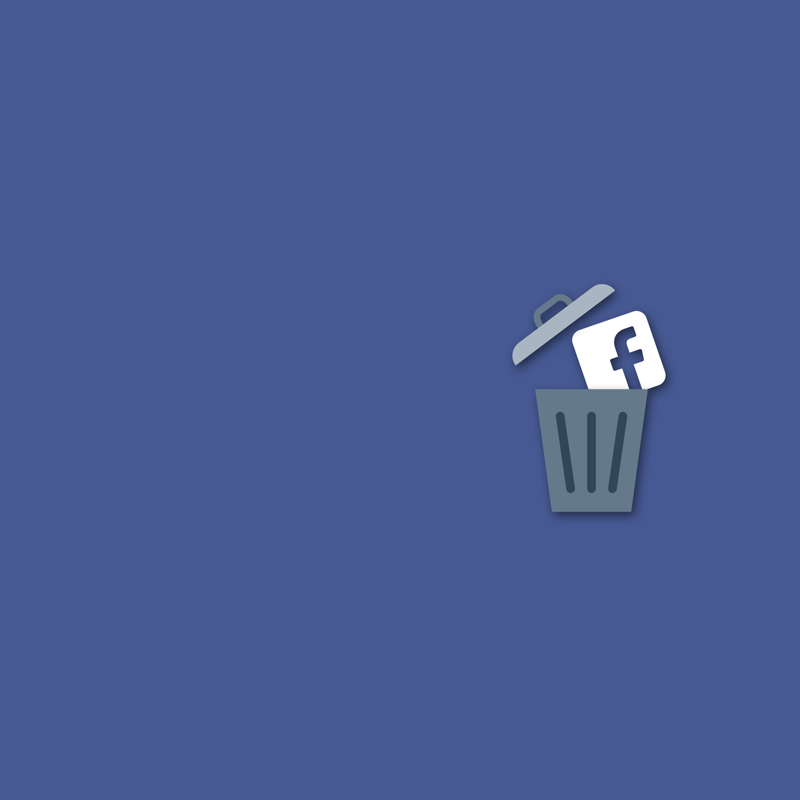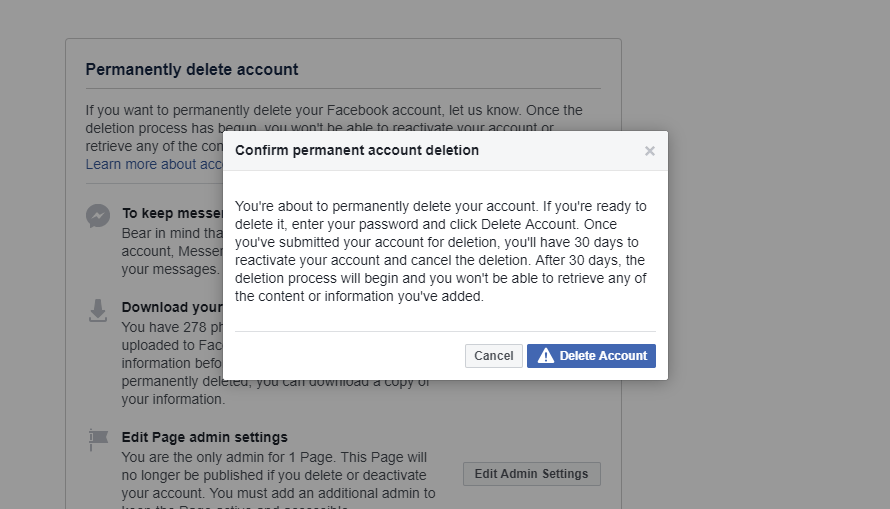
Every few months, especially after big incidents, there are campaigns that urge people to delete their Facebook account.
Even long before the Facebook - Cambridge Analytica scandal, before Jim Carrey urging people to ditch Facebook, before Facebook became known to use "behavioral cocaine" to keep users engaged, or manipulating and dividing people, ripping the society apart, or exploiting the vulnerability in human psychology, there were occasions that made people just want to leave Facebook for good.
Calls to #deletefacebook are nothing new. The social networks actually allows anyone who have registered on its platform to leave at any time they want. Especially after the numerous scandals it experienced, Facebook cannot say no.
However, Facebook is not letting anyone off the hook that easy. Or to be more precise, users need more patience, as Facebook increased the time it takes to delete an account from 14 days to 30 days.
Facebook is giving users who decide to delete their accounts a 30-day grace period to change their minds.

A Facebook spokesperson told The Verge that they made the change because some people have tried to log back into their accounts, after their 14 days are up.
"The increase gives people more time to make a fully informed choice," the spokesperson said.
However, the company didn't give any percentage data of the people who delete their account who actually did this.
The change can also be a reason because more people are deleting their accounts, and Facebook has suffered some struggles in keeping its young audience engaged.
To delete your Facebook account, you need to login to your account and head to facebook.com/help/delete_account and hit the 'Delete Account' button. Then, Facebook will ask you to enter your password and again you need to confirm. Facebook may present you with a different screen and a captcha. In that case, you’ll have to enter your password, and the captcha before confirming.
During the waiting time, you may get emails from Facebook about coming back to the site. If you resist that temptation until your days are up, you will not be able to log in anymore.
While Facebook is still the largest social media network on the web, it has experienced a sluggish growth.
In the U.S. and Canada, daily active users (DAUs) remained flat. Worse happened in Europe, as DAUs have dropped by 4 million in 2018 alone. Facebook executives indicated that this was mostly due to GDPR. On the other hand, Facebook had more luck in Asia as DAUs in the continent increased, despite not by much.